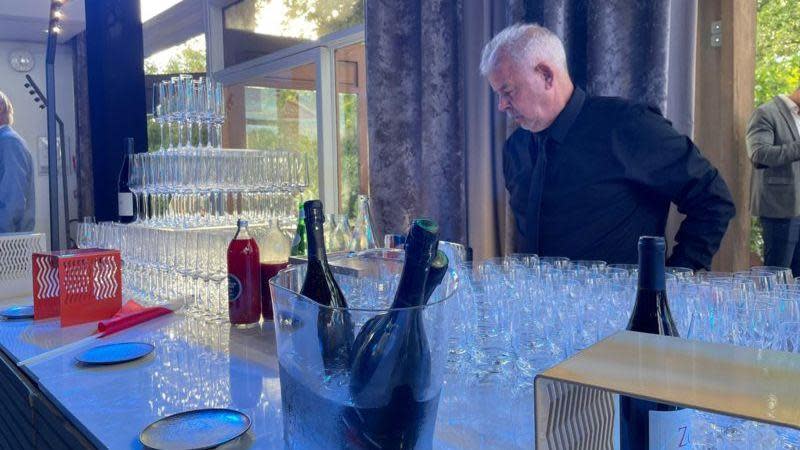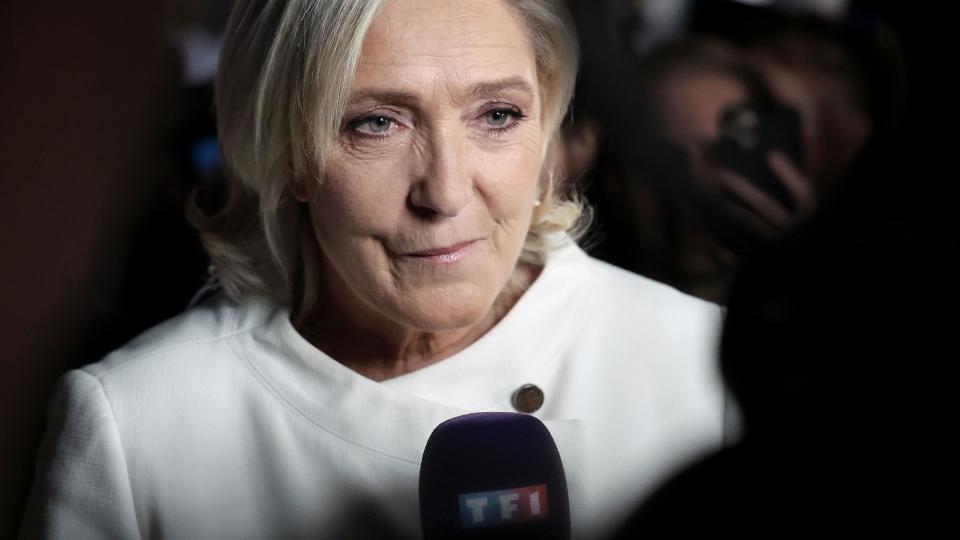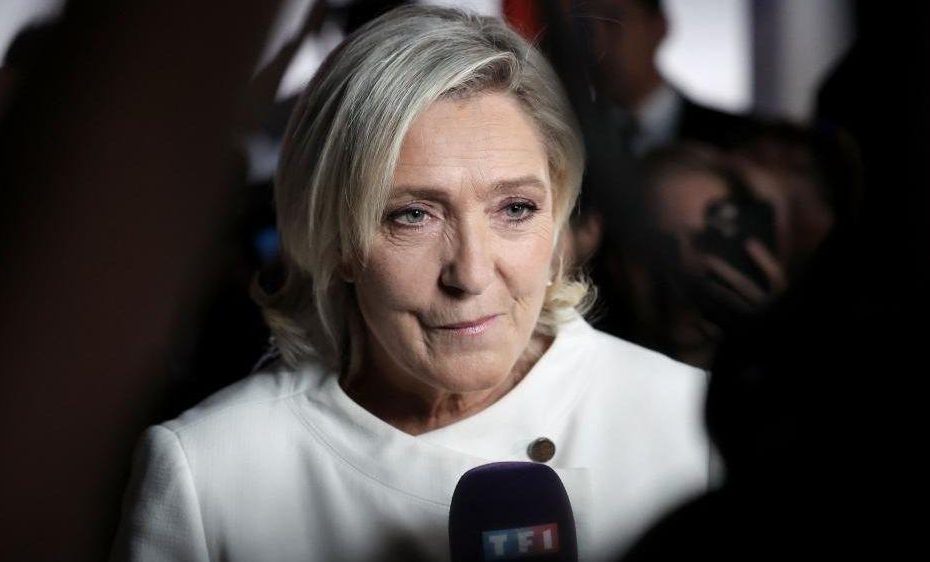The champagne was chilled and the jazz was playing softly: the setting was the pavilion in the Bois de Vincennes in Paris, where the Rally National (RN) was organising its hopefully victorious rally.
Hundreds of journalists had come from all over the world, with sniffer dogs to protect a party we all thought was in power; it was the first time since World War II that the far right would come to power in France.
But as time wore on toward the 8 p.m. exit poll, the mood began to change. Party apparatchiks spoke in hushed tones about indications that they had fallen short. Nervous glances were exchanged, glasses seemed more half empty than half full.
And then the screens told the story: of the National Rally being beaten into third place by the left and by President Macron’s centrists. There was a stunned silence – and then a little applause from party supporters to keep their spirits up.
“We are sad, disappointed and defeated by this result,” said Rosa Gave, holding a French flag.
“We are the victims of an unfair alliance led by Macron to keep us from power.”


That “alliance” was more of a pact, struck in the last week by opponents of the National Rally – that in many of the three-way races where the RN was leading, the third-party candidate would withdraw, and voters would be encouraged to rally behind the figure best placed to stop the far right. And it worked. It’s a common electoral tactic here – but it has still angered the RN.
When Jordan Bardella, the 28-year-old party leader – and the man who had hoped to become prime minister of France – arrived, cheers rang out from the dwindling crowd inside.
“Depriving millions of French people of the opportunity to see their ideas come to power will never be a viable future for France,” he said.
He criticised President Emmanuel Macron for, in his own words, pushing France towards instability – and into the arms of what he called the “far left”: a reference to France Unbowed, the party leading the winning left-wing coalition.
And then came Marine Le-Penthe leader of the National Rally, whose dream of national power has been thwarted again at the last moment. She was surrounded by journalists, while her supporters chanted “Marine, Présidente!” A few reporters were knocked over in the tumult.
“The tide is rising – our victory has only been postponed,” she said, calling President Macron's position “untenable”.


The president who came to power on the promise of reviving the center, of uniting left and right, has done anything but that—pushing the French to the edge. And while many in the Rassemblement National will be bitterly disappointed that their victory in the first round of this election did not bring them to power after the second, they will cheer about a significant increase in the number of MPs since the last parliamentary election, confident that their time will come.
“France has chosen the coalition of the worst,” said Matteo Giammaresi, a supporter of the Rassemblement National, as he clutched his glass of champagne on a rapidly emptying dance floor.
“What we are saying now gives France hope for the future.”
The party will now sit out this government, convinced that division and discord will play into Marine Le Pen's hands. And then, in the 2027 presidential election, it could say: this is what happens when we are excluded from power.
It is still completely unclear which government will form now.
A hung parliament awaits – and possible paralysis. France has been plunged into the political unknown – but not in the way pollsters predicted.
![]()

